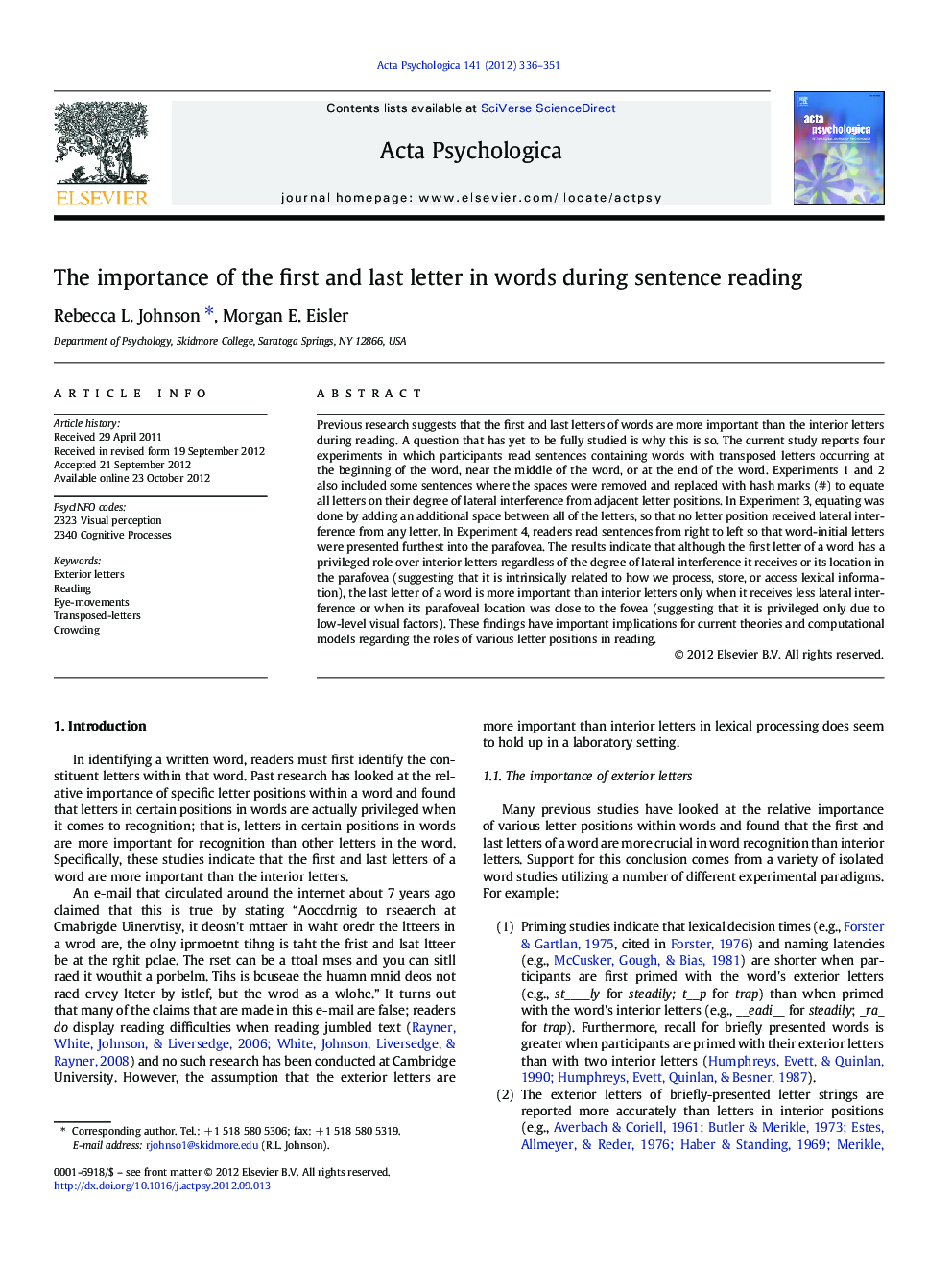| Article ID | Journal | Published Year | Pages | File Type |
|---|---|---|---|---|
| 919957 | Acta Psychologica | 2012 | 16 Pages |
Previous research suggests that the first and last letters of words are more important than the interior letters during reading. A question that has yet to be fully studied is why this is so. The current study reports four experiments in which participants read sentences containing words with transposed letters occurring at the beginning of the word, near the middle of the word, or at the end of the word. Experiments 1 and 2 also included some sentences where the spaces were removed and replaced with hash marks (#) to equate all letters on their degree of lateral interference from adjacent letter positions. In Experiment 3, equating was done by adding an additional space between all of the letters, so that no letter position received lateral interference from any letter. In Experiment 4, readers read sentences from right to left so that word-initial letters were presented furthest into the parafovea. The results indicate that although the first letter of a word has a privileged role over interior letters regardless of the degree of lateral interference it receives or its location in the parafovea (suggesting that it is intrinsically related to how we process, store, or access lexical information), the last letter of a word is more important than interior letters only when it receives less lateral interference or when its parafoveal location was close to the fovea (suggesting that it is privileged only due to low-level visual factors). These findings have important implications for current theories and computational models regarding the roles of various letter positions in reading.
► We examined processing at various letter positions during reading. ► Readers read sentences with letter transpositions. ► Letter positions were equated on their degree of lateral interference. ► The last letter of a word is privileged only due to low-level visual factors. ► The first letter is intrinsically important to how we process lexical information.
